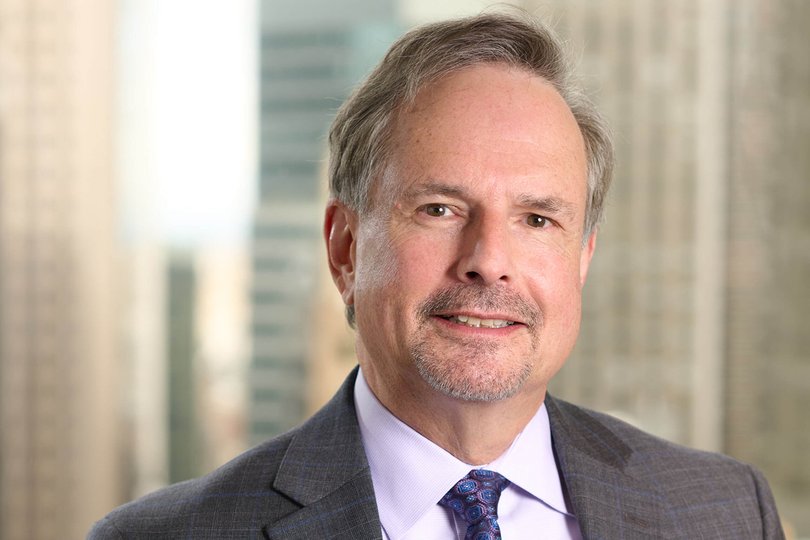
Grooming the next generation of peace and security experts through high-level access and on-the-job training is the goal of the Herbert Scoville Jr. Peace Fellowship. Since it was established in 1987 with support from Carnegie Corporation of New York, more than 150 college and graduate school graduates have been named fellows through a highly competitive program that includes a salaried position for up to nine months with participating organizations in Washington, DC.
Where are the former fellows today? We asked alumni for an update.
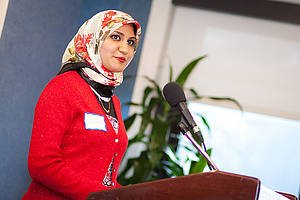
Homa Hassan
Consultant, Inter-American Development Bank
Spring 2013 fellow with the National Security Network
The Scoville fellowship introduced me to the exciting, nonstop, heart-racing world of U.S. global security initiatives in the heart of Washington, D. C. While working with the National Security Network, I had the opportunity to combine two interests: U.S. foreign policy in the Middle East and global security through nuclear nonproliferation and diplomacy.
I focused on Iran and authored rapid-response analysis and talking points for elected officials, media, and advocacy groups. Through the fellowship, I was invited to meet with former National Security Council advisors; participated in closed meetings with current policymakers on how to respond to events such as the use of chemical weapons in Syria; and wrote articles on contemporary national security issues for publications such US New and World Report. Every step of the way was nothing short of thrilling.
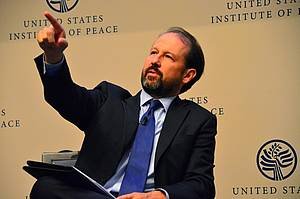
Daryl Kimball
Executive Director, Arms Control Association
Fall 1989 fellow with Physicians for Social Responsibility
I arrived at Physicians for Social Responsibility (PSR) in 1989 as the Cold War was ending and as the public and policy makers were beginning to recognize the enormous health and environmental risks of nuclear weapons production and testing. PSR was developing a new research and advocacy program on the issue, which gave me with a chance to contribute. My supervisor and mentor David Lewis taught me about writing, media outreach, and organizational skills.
Within a year of my fellowship, I joined the staff to coordinate a major research project and was leading PSR's efforts to win Congressional support for legislation to halt to U.S. nuclear testing. The effort was ultimately successful and led to the commencement of negotiations for a Comprehensive Nuclear Test Ban Treaty—a long-time objective of Pete Scoville.
The fellowship provided me with the chance, the training, and the inspiration to launch a lasting career in arms control -- and eventually the opportunity to lead the Arms Control Association, which is proud to be able to help train the next generation of leaders through our internship program and involvement in the Scoville program.
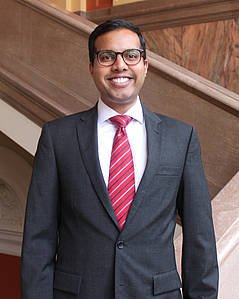
Danny Hosein
Student, University of Pennsylvania Law School
Fall 2007 fellow with Friends Committee on National Legislation Education Fund
Because of the Scoville Fellowship, I got a foot in the door in Washington, D.C. and learned about the legislative process from some of the best public interest legislative advocates in the business including David Culp, the Friends Committee on National Legislation (FCNL) expert on nuclear arms control and disarmament. David was a mentor who taught me the importance of writing succinctly and clearly. More than that, he had confidence in my ability to take on leadership roles.
Leading up to the 2008 election, FCNL tasked me with developing a guide stating the foreign policy positions of the 2008 presidential candidates. Developing that guide allowed me hone my writing skills, showed me the importance of being able to summarize complex positions for diverse audiences, and helped me network as I presented on my findings to the arms control community. The skills gained through the fellowship have been integral to my success and led to my working on a presidential campaign and in the Obama Administration.
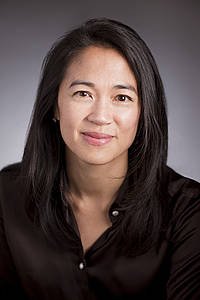
Felicia J. Wong
President and CEO, Roosevelt Institute
Fall 1988 Fellow with the Arms Control Association
The Scoville Fellowship got me my first job in Washington and my first exposure to the world of think tanks and policy organizations. I went to work at the Arms Control Association where my assignment was to help edit the newsletter, supervise college interns, and basically learn all I could. Other Scoville Fellows worked at similar jobs around the city and as in most good fellowship programs, we spent time over pizza or at happy hours puzzling out the mysteries of policy, or the Hill, or office politics.
I have gone on to teach high school history, get a PhD in political science, work in the White House and in strategic philanthropy, and help manage a for-profit start-up. Today, I run the Roosevelt Institute, a national economic and social policy think tank and the largest student policy network in the country. We believe that leadership and ideas are critical to building power and making change, and that these ideas must be put into action. Looking back, I realize that I learned most of this at my first DC job, thanks to the Scoville Fellowship.
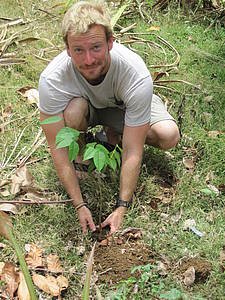
Brian Ikaika Klein
Doctoral Student, University of California, Berkeley
Fall 2008 Fellow with the Union of Concerned Scientists
Working at the Union of Concerned Scientists gave me an opportunity to collaborate with Stephen Young and other leaders in the global security field and to undertake independent projects in nuclear weapons policy and environmental security. In addition, fellows benefited from a series of lunches and meetings with experts organized by Scoville’s program director Paul Revsine. This gave us a chance to learn from and establish relationships with leading thinkers and high-level officials. It was one of those encounters—with Geoff Dabelko, then-director of the Woodrow Wilson International Center for Scholars’ Environmental Change and Security Program (ECSP)—that set me up for my first post-Scoville position, also with ECSP. That position launched me further into the world of environmental security and international development.
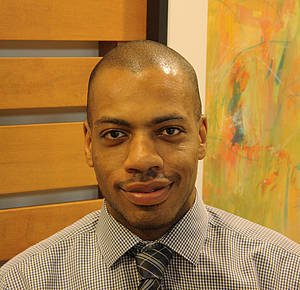
Que Mykte' Newbill
Advisor, America-Mideast Educational and Training Services
Fall 2012 Scoville Fellow with the Henry L. Stimson Center
My area of study is Middle East security. The rich Scoville network allowed me to tap into opportunities that most young professionals would not have access to. While working at the Stimson Center, I was also able to join closed policy working groups with senior career professional on my specific issues. I attended several high-level meetings and small, private, roundtable discussions with senior foreign dignitaries. It’s amazing to know a number of ambassadors who call you by your first name! In addition, I published original research and analysis in various media outlets on my area of expertise.
Overall the Scoville experience influenced me to focus on the role of creative policy solutions in mitigating security risks particularly in countries with large youth populations. In my opinion, the Scoville Fellowship is unmatched in its access to senior international security experts, opportunity for substantive research, and emphasis on professional development. I plan to further develop and implement my ideas by attending law school and business school in Fall 2015.
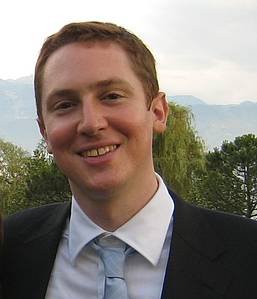
Andrew Prosser
Senior Analyst, UN Interregional Crime and Justice Research Institute
Spring 2004 Fellow with the Center for Defense Information
Ten years ago when I was just starting out in the field of global peace and security, the Scoville Fellowship became a cornerstone of my career. It took me to the center of the Washington-based security and arms control community with a position at the Center for Defense Information (CDI). I worked with an exceptional team led by Theresa Hitchens and Bruce Blair. This first-rate experience involved frequent interaction with world-class policy experts from think tanks, government, and academia. I researched and wrote on nuclear trafficking and non-proliferation, U.S. military-strategic relations in South Asia, and the war in Iraq.
I draw upon the insights and contacts gained through the fellowship today in my current position as a senior analyst with the United Nations where I am responsible for guiding national officials in developing strategies for chemical, biological, radiological and nuclear risk mitigation.
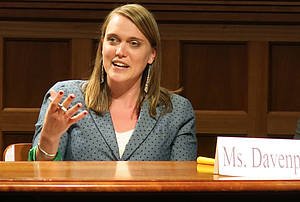
Kelsey Davenport
Director for Nonproliferation Policy, Arms Control Association
Fall 2011 Fellow with the Arms Control Association
Six months into my Scoville Fellowship at the Arms Control Association, I had the opportunity to speak at the National Press Club ahead of the March 2012 Nuclear Security Summit. I still remember the thrill of that moment. I could write pages about the knowledge and insights into arms control that I gained as a fellow, but I remain most grateful for the mentorship of Daryl Kimball and Tom Collina as I struggled to transition from academia to the complexities of policy advocacy. They challenged me to translate thoughts into policy proposals, to learn the nuances of messaging to different audiences, and to develop my own voice.
I went into the fellowship believing that it is the fundamental responsibility of every person to work toward improving human security, to not only dare to envision a more peaceful future, but also strive to achieve it. My fellowship at ACA helped me develop the practical skills to contribute to this goal by working to eliminate the world’s most dangerous weapons.

Alex Stolar
Acting Team Chief, Department of State’s Biosecurity Engagement Program
Spring 2007 Fellow with the Henry L. Stimson Center
The Scoville Fellowship provided an unparalleled opportunity to start my career as a diplomat committed to advancing nonproliferation. I was especially fortunate to work under the Stimson Center’s Michael Krepon. He is the ultimate diplomat-scholar and taught me the art of patient, pragmatic diplomacy; methods for evaluating nonproliferation problems and devising practical solutions; and approaches for uniting diverse stakeholders behind common goals that advance our shared security. I now work in the State Department’s nonproliferation bureau, and every day I rely on the lessons Michael taught me during my Scoville Fellowship.
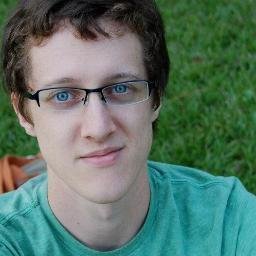
Cole Harvey
PhD candidate, UNC-Chapel Hill
Spring 2009 Fellow with the Arms Control Association
During my fellowship at the Arms Control Association, I was immediately put to work on substantive projects. I covered the development of new arms control policies by the incoming Obama administration for Arms Control Today, among other issues. I also completed a large report on proposals made by states and NGOs to improve the implementation of the Nuclear Nonproliferation Treaty in advance of the 2010 Preparatory Committee Meeting. These two opportunities gave me a broad and thorough introduction to relevant policy issues in the arms control and nonproliferation fields.
The education, connections, and publications that I was able to develop through the Scoville Fellowship led directly to my hiring at the Center for Nonproliferation Studies when my fellowship ended. I continued to work on nuclear energy and weapons issues at CNS for two years before leaving to earn a PhD in political science at UNC-Chapel Hill. My background in nonproliferation policy and experience working in DC continue to inform my research and teaching.

